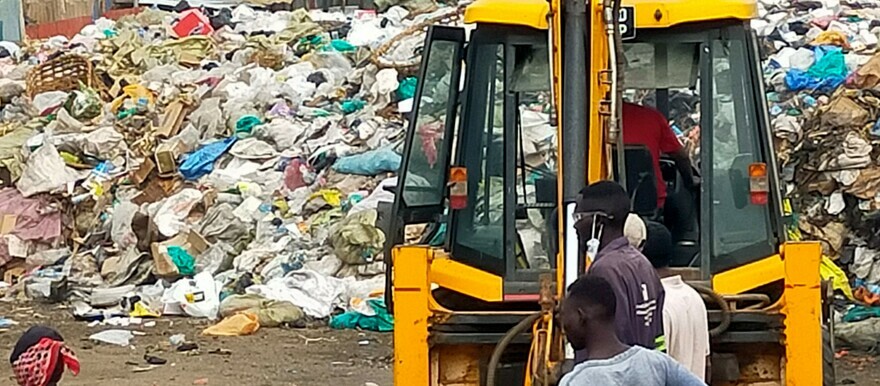The Juba City Council (JCC), as the governing body responsible for city development, faces criticism from human rights activists for its role in managing waste, garbage collection, and environmental protection. These aspects impact the overall public health system, addressing issues arising from industrial companies, sanitation challenges, and natural health concerns.
JCC plays a crucial role in maintaining a healthy environment, influencing public health measures for businesses, industrial production companies, residents, and garbage collection transporters. Unfortunately, continuous contamination of the city’s surroundings raises concerns.
Collaborating with the Ministry of Health and the Directorate of Environment and Public Health, JCC must implement effective preventive measures to address environmental challenges. In major cities across South Sudan, hygiene promotion remains incomplete, and doubts persist about the provision of quality water supply and proper excreta disposal.
Vector control issues, stemming from poor environmental hygiene, inadequate solid waste management, and the absence of city drainage channels, contribute to health concerns. Air pollution further jeopardizes the safety of Juba City residents. The JCC leadership needs to recognize that managing the city is a national duty, requiring the mayor and state government to ensure a green environment and hygienic services for citizens.
The practice of collecting daily and monthly mini-taxes must be accompanied by concrete efforts to enhance the cleanliness of Juba City. The repercussions of neglecting environmental cleanliness are evident – unbearable pains, severe criticisms, hazardous barriers, and the perception of Juba City as an unsafe environment within East Africa. The lack of an effective public health system exacerbates the outbreak of preventable diseases, including vector diseases like cholera, allergic reactions leading to blindness, persistent coughs, severe malaria, and the unpleasant odour permeating the city.
The Juba City Council (JCC) management should not solely rely on tax collection; instead, it must prioritize the transformation of Juba’s environment. The mayor and tax collectors should conduct regular assessments and spot-checks on existing industrial and oil companies that contribute to pollution. This includes scrutinizing operations in shared residential areas, where companies lease lands without considering the potential high risks involved.
Unintended fire outbreaks pose a significant threat, particularly in shared residential areas where fire-fighting units might face challenges. The city’s poor design, with random garbage dumping and a lack of designated garbage stations and recycling centers, exacerbates the problem.
JCC should collaborate with the Central Equatoria state and the central government to contract specific companies for efficient garbage collection. The recruitment of public health officers from both JCC and the Ministry of Health is crucial. Garbage collecting transporters and production companies dumping waste into the River Nile pose a serious threat to human lives, as the same water supplied to residential areas comes from the same contaminated source. It is imperative to address these issues to safeguard the health and well-being of Juba’s residents.
The Juba City Council (JCC) and the Public Health Directorate must take decisive steps to implement a comprehensive public health and environmental plan, ensuring the preservation of lives in the city. The safety of food, water, and beverages for human consumption remains a significant concern in Juba City. Street vendors sell food from unsanitary places, roadside restaurants operate without adherence to national standards, and industrial companies produce goods without certification from a national bureau, lacking proper production laboratories to assess the viability of consumables.
It is imperative that companies producing mineral water prioritize public health measures during production. This includes checking ingredient levels, chlorine content, machinery cleanliness, and the durability of consumable liquid goods. Understanding how long these products can remain unconsumed without posing health risks to citizens is crucial.
Reports and research consistently highlight that JCC falls short in inspecting these crucial categories. Officials often prioritize tax collection directives over essential health and safety inspections. Fruits and fresh meat are sold openly without proper guidance from JCC officials, further emphasizing the need for improved oversight.
I call upon the National Bureau of Standards to play a pivotal role in the public health system. Establishing and enforcing rules and regulatory procedures for licensed industrial and business entities is essential. Business communities must collaborate with authorities to ensure the cleanliness of the city. Juba City’s current reputation as an unclean city in the region necessitates a commitment to adhering to laws that mitigate environmental challenges, pollution, and public health risks.
David Lony Majak is the Executive Director of Goodhearted Orphans and Disabled Organization and a commentator on street children and a human rights activist. He can be reached via email: delonymajak7@gmail.com
The views expressed in ‘opinion’ articles published by Radio Tamazuj are solely those of the writer. The veracity of any claims made is the responsibility of the author, not Radio Tamazuj.




